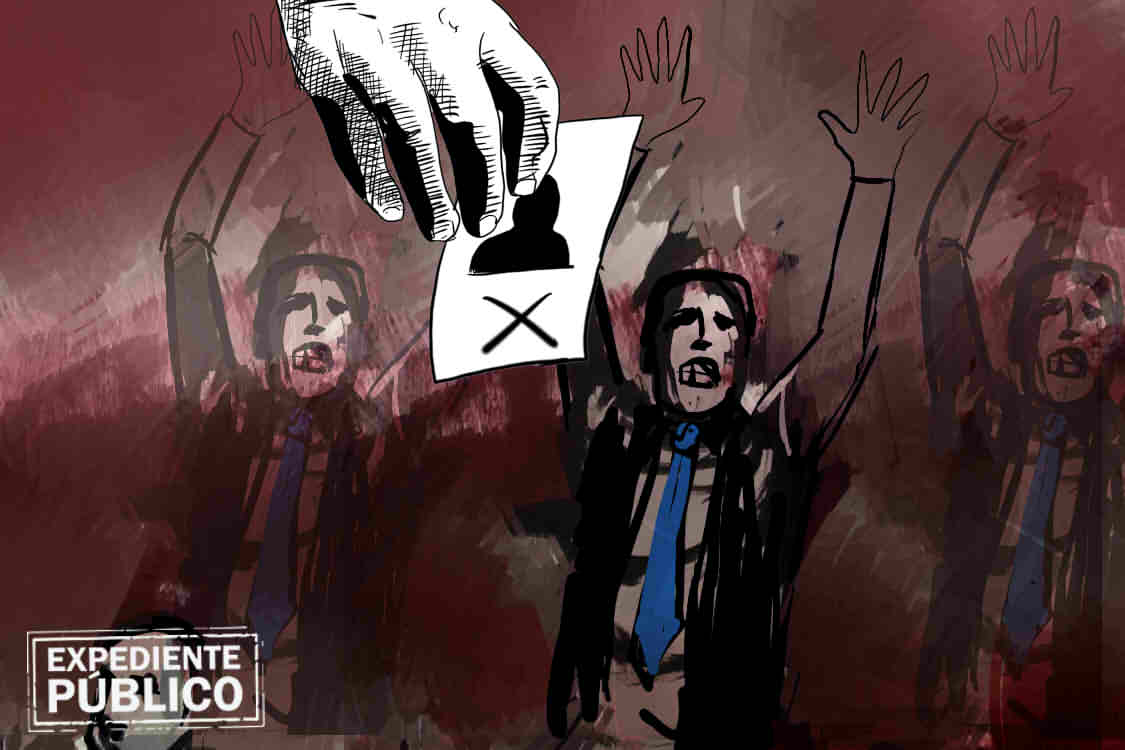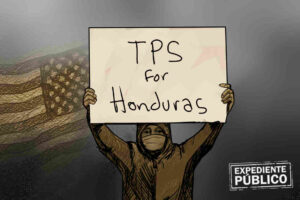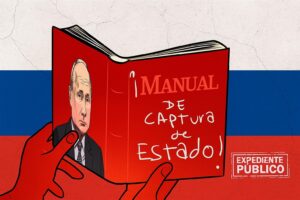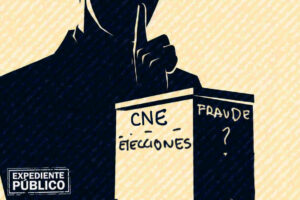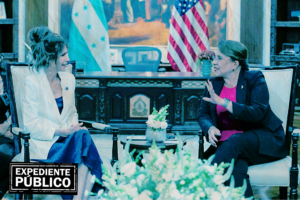*At least 30 political groups are competing in elections marked by a weak democracy.
**On March 27, 2023, electoral campaigns in Guatemala officially began, in which former political figures are candidates.
***Guatemala has been setback more than three years in electing magistrates and judges to the Supreme Court of Justice (CSJ in Spanish) due to the lack of a political consensus.
Expediente Público
On June 25, 2023, Guatemala will see its general elections take place, and, once again, family clans are present in the electoral process, involved in power grabbing, business deals, sabotaging former friends who are now “political enemies,” and making promises to take the country from its ‘Third World’ state to a utopian one, as if by magic.
The elections in Guatemala are being characterized as a game of power, ego, and business; instead of encouraging political participation, these dynamics stagnate it. It is a sad reality for the ailing democracy of the Central American country and its more than 16 million inhabitants.
In this electoral cycle, the president, vice president, 340 mayors representing 22 departments, 160 congressmen, and 20 parliament members of the Central American Parliament (PARLACEN), along with different family clans and politicians, some of them having been flagged in a serious way and others now internationally sentenced in North American courts, look seize power.
‘Quantity’ is not synonymous with ‘quality’
The number of political parties has grown in an alarming way in the last few years. For the 2023 elections, there are 30 political groups that are contending for public positions, according to data from the official page of the Supreme Electoral Tribunal (TSE in Spanish).
This situation is worrisome for experts who study political and electoral issues since it undermines the creation of representative public policies because of the lack of a social consensus.
Pedro Cruz, an activist, political analyst, and president of the association, Guatemala First, told Expediente Público that he was “in favor of the participation, in favor of democracy” but that having a large amount of political parties hindered arriving at a consensus because of the number of people involved.

Read: El acoso judicial a periodistas de Guatemala, copia del agresivo estilo de Daniel Ortega
This is because, according to his explanation, to generate consensus, there should be other types of negotiation present, which is where the opportunity to corrupt the decision-making process lies.
The setback of more than three years in electing magistrates and judges to the Supreme Court of Justice (CSJ in Spanish) is a testament to the backlogging of the legislative agenda, due to the lack of a consensus in said government branch, Cruz pointed out. This situation highlights the problems that can result from the lack of common goals and criteria.
Gabriel Medrano, a former magistrate of the CSJ and the TSE, approached by Expediente Público, believes that the phenomenon of the proliferation of political parties shows “our lack of political culture” and explained that a country as small as Guatemala does not necessarily have political parties of high quality just because there are so many. He highlighted that in terms of democracy being able to function, this number was “negative.”
According to the experience and knowledge of María Eugenia Mijangos, a former magistrate of the TSE, this proliferation has occurred because these groups are not political parties to the fullest extent of the term.

In her opinion, “they are not permanent organizations, which over time remain consolidated and take advantage of non-electoral seasons to canvas and gain the loyalty of their supporters.” In fact, “the political parties that we have in Guatemala only respond to the electoral interests of any given moment,” said Mijangos.
It is important to emphasize that most of the candidates know that they will not win, but their participation is part of a larger business that makes sense for them. If a political party achieves five percent of the votes, it receives funds from the State and its participants can opt to fill key government positions. That said, even if they lose, they end up winning.
Who are those registered?
To date, of the 30 political parties present, the Citizen Registry of the TSE resolved to register 19 presidential pairings. These are the official candidates:
- Valor Unionista Coalition: This alliance seeks to put Zury Ríos and Héctor Cifuentes in power as president and vice president, respectively. Ríos is the daughter of the former president of Guatemala, General Efraín Ríos Montt, who rose to power through a coup d’état. He was prosecuted and sentenced for genocide, but that sentence was made null. This is the third time that Zury Ríos seeks the highest position in the executive branch. In 2019, he was not able to participate in the elections due to a resolution of the Constitutional Court (CC), Article 186 of the Magna Carta.
- Esperanza Unit (UNE in Spanish): This party got behind Sandra Torres and Romeo Guerra as its presidential ticket. Torres, the former first lady of Álvaro Colom (2012-2016), is running for president for the third time. In November of 2022, Highest Risk Judge A, Claudette Domínguez, closed the case of “UNE Financing,” which involved the candidate and six other individuals who participated in illicit activities during the 2015 campaign.
- Azul Party: The party has nominated Isaac Farchi and Maurício Zaldaña. Farchi is a businessman and former Guatemalan member of the Congress who, in the elections of 2019, was the presidential candidate for the VIVA Party, a political group that won sixth place. During the runoff, he supported Alejandro Giammattei, the current president of Guatemala who appointed him general coordinator of the Executive Committee of the National Competitiveness Program (PRONACOM in Spanish).
- CABAL Party: Edmond Mulet and Max Santa Curz are the presidential ticket for the party. Mulet is a renowned journalist, lawyer, diplomat, and Guatemalan politician. He was a member of and president of the Congress of the Republic and worked as a diplomat before the United Nations, among other positions he has held. In the last few days, the Public Prosecution Service (MP in Spanish for ‘Ministerio Público’) requested the withdrawal of his preliminary trial, a move that makes Mulet eligible to run for president and that was decided due to his supporting the current persecution of journalists in the country.
- TODOS Party: Ricardo Sagastume and Guillermo González make up their party’s ticket. Sagastume is a renowned Guatemalan businessman who briefly served as minister of the economy from August 22 to September 29 of 2015 during the government of the former president, Otto Pérez Molina (2012-2015).
- VAMOS Party: Manuel Conde and Luis Suárez are the candidates of this political group. Conde is currently a member of Congress and was secretary general to President Jorge Serrano Elías. Now, he is joining the party that brought Alejandro Giammattei to power.
- Humanista Party: Rudio Lecsan Mérida and Rubén Darío Rosales represent their party in this election cycle. Lecsan is currently a member of the Congress of the Republic and was director of the National Civil Police Forces (PNC in Spanish) for the government of Alfonso Portillo.
- Republican Party (PR in Spanish): Rafael Espada and Arturo Herrador represent the party. Espada is a renowned cardiovascular surgeon who served as vice president of the country during the UNE Government of Álvaro Colom.
- National Integration Party (PIN in Spanish): Luis Lam and Otto Marroquín are the two elected candidates for this political group. Lam was a legal and military advisor to the United Nations (UN) and became legal counsel to President Jimmy Morales in 2019.
- VICTORIA Party: Amílcar Rivera and Fernando Mazariegos are the designated candidates for the party in these elections. Rivera was the mayor of the municipality of Mixco during two different terms.
- NOSOTROS Party: Rudy Guzmán and Diego González will compete in this election cycle. Guzmán is the husband of Nadia de León Torres, daughter of Sandra Torres, and is a former congressional candidate and state contractor.
- Semilla Movement: Bernardo Arévalo and Karin Herrera will look to seize the highest position of the executive branch. Arévalo is the son of the former president of Guatemala, Juan José Arévalo Bermejo, and is currently a member of Congress for the same political group.
- Republican Union (UR in Spanish): Giulio Talamonti and Óscar Barrientos are the candidates elected to represent this political party. Talamonti, now a candidate for the presidency, worked at the Office of the Ombudsperson for Human Rights (PDH in Spanish). While he worked for this government department, he was sentenced to six years and eight months in prison, without the ability to seek an alternative sentence, for hitting his wife and daughter of nine years, who tried to defend her mother. He completed his sentence at the Preventative Center for Men of Zone 18. He also served as director of the Penitentiary System during the government of Álvaro Colom.
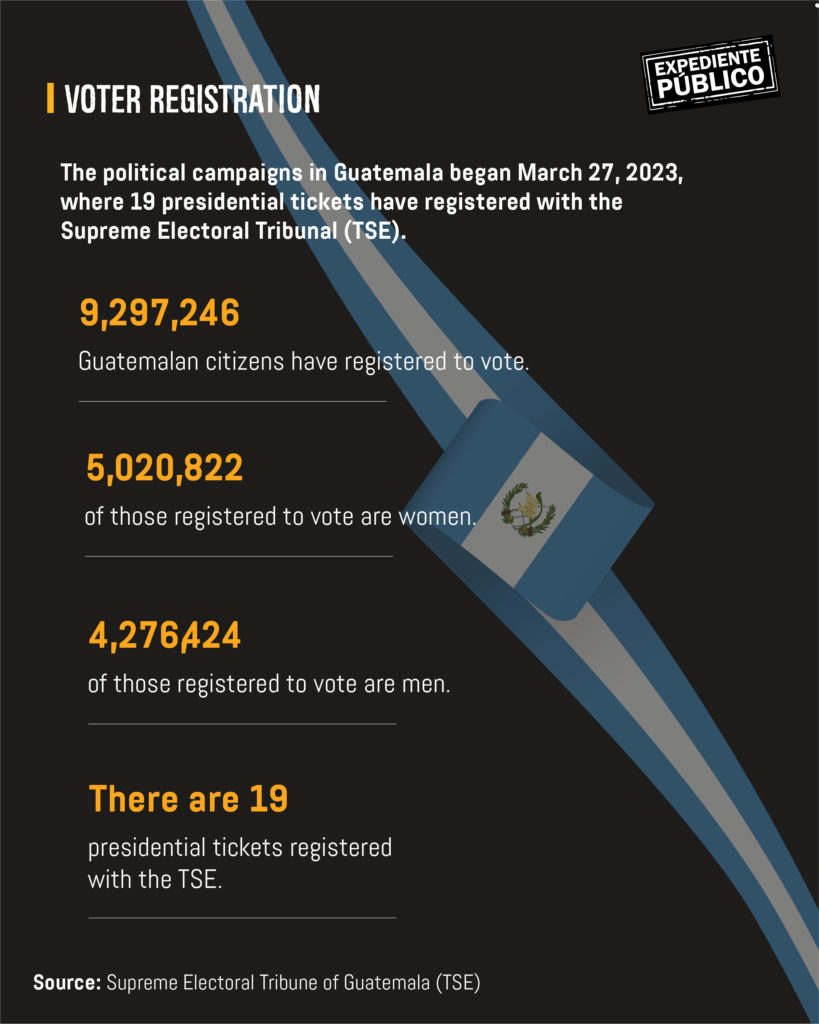
- Community Elefante: Hugo Peña and Hugo Johnson represent this political group. Peña was a congressional candidate for the Union Party in the previous elections of 2019.
- FCN Nation: Sammy Morales and Miguel Ángel Moir will represent the party during this election cycle. Morales is the brother of the former president, Jimmy Morales (2016-2020).
- Citizen Prosperity (PC in Spanish): Carlos René Pineda and Efraín Orozco are the candidates for this party. Pineda was a possible candidate for the Cambio Party that Manuel Baldizón and his sons founded. However, he left the party and is now part of the PC Party.
- Vision with Values (VIVA in Spanish): VIVA has selected Armando Castillo and Edgar Grisolia to represent them in the presidential elections. Castillo is a Guatemalan businessman who is currently a congressman for the same group.
- Winaq-URNG Party: Amílcar Pop and Mónica Enríquez are the candidates for this group. Pop has also been a congressman for this political party of which he is a founding member.
As was mentioned at the beginning of this report, the ties between the politicians and the families that look to continue their legacies of power are evident. To experts, some politicians running for different positions in the popular elections lack the credentials to run.
Maldonado and Cruz agree and tell Expediente Público that the requisites to become a political party should work to ensure the quality of the political parties.
The context: La receta de Giammattei para tapar un año de fracasos con la compra de Sputnik V
Some yeses but a lot of noes
The start of this election cycle has been characterized by the registration and lack thereof of several candidates, challenging the decisions of the Citizen Registry of the TSE. The credibility of the tribunal that guarantees elections in Guatemala has been diminished by a series of contradictions in its resolutions.
For the political analyst, Renzo Rosal, the ballot could get lost in the shuffle due to the number of candidates for the different positions listed.
“The country has always talked about informed voting, but how can we vote in an informed way with 45 thousand candidates, approximately, who are hard to differentiate? This weak application of a political culture translates into apathy and a lack of public interest in the country,” Rosal told Expediente Público.
Another factor that Rosal identified at the Directorate of TSE is the lack of independence that the electoral organization has shown. An example of this are the “arbitrary decisions on candidates: some can run, and others cannot, even though there is a considerable number of candidates being questioned on their ties to organized crime who have achieved participation, while others without such ties have not. Beyond the sympathy for certain participants, the tribunal should have clear rules that apply to everyone,” underlined Rosal.
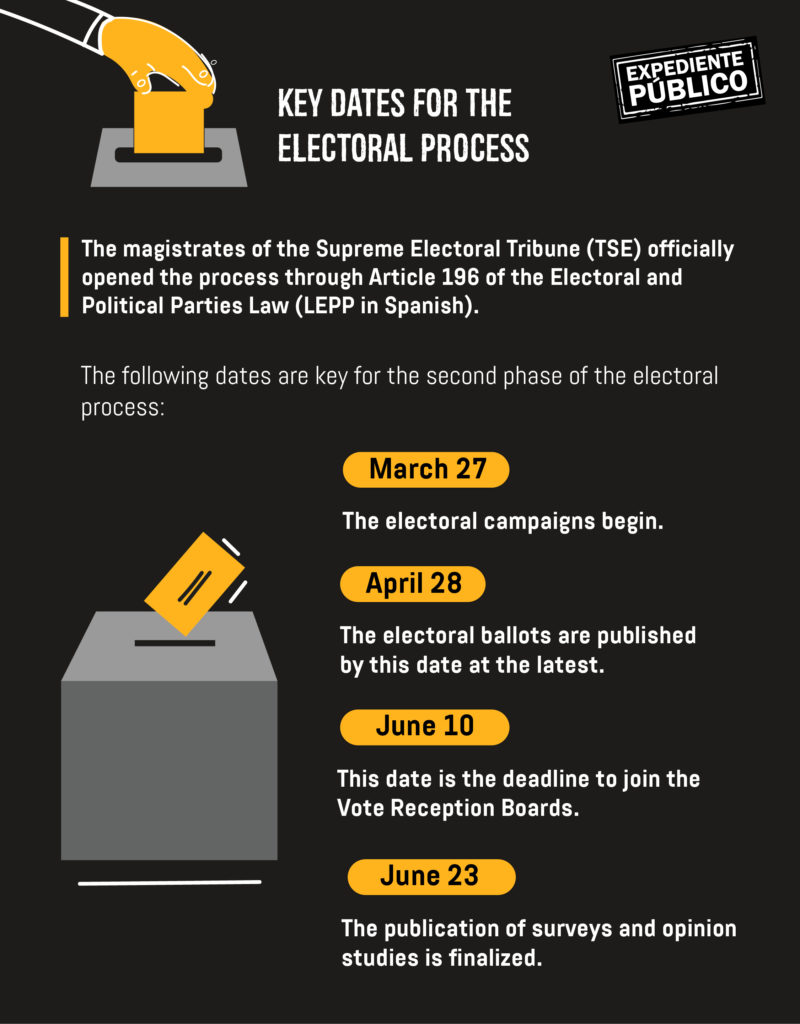
To date, three presidential tickets have been rejected by the electoral court. Two of them had already exhausted their legal resources and the latter is still awaiting a response to the appeal regarding the annulment, which was filed on Wednesday, March 22. The parties are the following:
– Podemos Party: The party seeks to take Roberto Arzú, the son of former president Álvaro Arzú, to the presidency, together with the candidate for vice president, Carlos Pineda. The presidential ticket was excluded from the elections for beginning to campaign too early in the cycle.
– Movement for the Freedom of the People (MLP in Spanish): The party has nominated Thelma Cabrera and the former ombudsperson on human rights, Jordán Rodas, to the presidential ticket. This pair was excluded from the election cycle because Rodas lacked proof of a required document issued by the CGC.
– Compromise, Renovation, and Order (CREO in Spanish): The rejection of the presidential candidate, Francisco Arredondo surprised the secretary general of the party, Óscar Chinchilla, who assured the press conference that the candidate had not done anything, verified by the Office of the Comptroller General of Accounts (CGC), that would impede him from running for president. If the TSE accepts the appeal, the presidential ticket would be included on the ballot, and if not, the party can still challenge the CSJ and CC.
Cruz affirmed his solidarity with those that had not been accepted and were unable to participate because from his point of view, “everyone has the right to participate.”
The activist and political analyst also regretted “the discretional criteria that had been applied by the TSE for candidates running for office.” He considered that it would have been better to allow them to participate and let the people decide at the ballot box.
These elections are not controversial to the extent of other elections, such as that of party leader, Manuel Baldizón, whose participation the TSE accepted despite having been sentenced in the United States to 50 months of prison after pleading guilty to committing the crimes of money laundering and conspiracy.
Currently, Baldizón is being investigated by the Guatemalan authorities for his involvement in the Odebrecht and Transurbano cases. Following the public indignation, the plenary of magistrates had to go back on their decision and reject the candidacy of the congressman.
This case made it possible for other candidacies to stagnate, such as that of the former president, Alfonso Portillo, who was declared guilty of the crime of money laundering before an American court, and that of José Ubico, who is wanted by the American authorities for his possible involvement in drug trafficking. Both politicians were seeking congressional seats.
For Cruz, “the suitability of candidates must be measured by their choices,” and stated that the rejection of the other candidates is due to pressure from Guatemalans.
He added that Guatemala first has taken legal actions, which are still in place, against the magistrates who voted in favor of the candidacy of Baldizón since, despite having retracted their decision, he had already been accused of committing the crimes of violating the Constitution and abusing his position of power.
No certainty or clear path
“It is not exciting or guaranteed,” Roberto Wagner, an independent political and international affairs analyst, told Expediente Público, referring to the current electoral process. Wagner affirmed that, from his point of you, there is a lack of trust, uncertainty, and apathy regarding voting, given the political agenda and the candidates.
Read more: Honduras, El Salvador y Guatemala, en la era de “las migraciones masivas”
The expert showed his concern for the current narratives of some of the candidates who assure the public that they will replicate what the president of El Salvador, Nayib Bukele, has done, and the voters’ approval of his actions.
“This shows that the thinking that we are not yet Cuba, Nicaragua, or Venezuela is not that far from the truth. As a Latin American country, we are vulnerable to similar regimes, whether left or right-leaning,” said Wagner.
The current persecution that has been happening, little by little, to journalists in Guatemala is a serious situation for Mijangos, Rosal, Wagner, Cruz, and Maldonado, as the electoral panorama, far from improving, is overshadowed and polarized by it.
However, losing hope is the last thing that the population should do when it comes to conserving democracy in the country, according to Maldonado who makes a call to the Guatemalan public, saying “that the uncertainty that we are living does not make us further from the ballot box but rather, brings us closer to exercising our rights,” he said.
On March 27, 2023, the electoral campaigns officially began, and the corresponding authorities still have different issues to resolve. The first round of elections is expected to take place on June 25 of this year, and Guatemala’s path remains to be seen.

